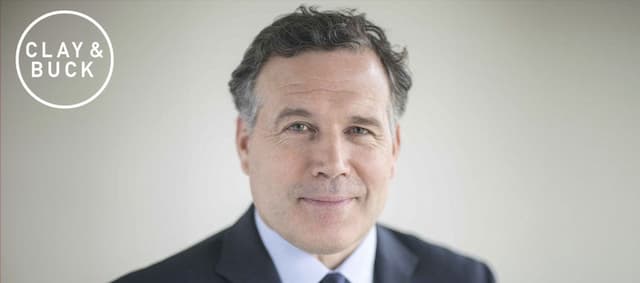Southwest CEO Says He’s Against Biden’s Mandate
CLAY: We’ve been talking about the controversy state versus federal government covid vaccine mandates, and how exactly companies are gonna respond, particularly through the prism of Southwest Airlines and the way that their pilots are responding to the covid vaccine mandate.
There have not been very many CEOs who have come out publicly and said, “I don’t support this mandate.” Southwest Airlines, which is based in the state of Texas, their CEO was on CNBC discussing some of the issues that they have had with canceled flights, and this is what he said about the vaccine mandate put in place by the Biden administration.
GARY C. KELLY: As I think you probably know, I’ve never been in favor of corporations imposing that kind of a mandate. I’m not in favor of that; never have been. But the executive order from President Biden mandates that all federal employees and then all federal contractors — which covers all the major airlines — have to have a mandate, a vaccine in place by December the 8th. So we’re working through that. We’re urging all of our employees to get vaccinated. Yes, we have some very strong views on that topic, but that’s not what was at issue with Southwest over the weekend.
BUCK: So we know that there’s multiple factors going on here, right? We’ve had people coming in. People staying home, sure. People certainly opposed the mandate from Southwest, Clay, but for a CEO of this stature and obviously with his company in the midst of the news cycle right now — really at the top of the news cycle — to come out and say he’s opposed to mandates?
I think people have forgotten, a lot of folks have forgotten that many of these things, whether it’s OSHA or the airlines affected by the federal mandate that all of this is still on a timeline, is still unfolding before us. And it’s not too late to push back. I think this is a part of it. We’ve just sort of had a lot of people go, “Oh, okay. The mandate’s in place. ” In New York it was very effective, right? They basically either fired you or you got the shot. That may not be how it plays out in places across the country.
CLAY: Yeah, and the other thing there if you heard him is I wonder how lenient for religious exemptions or health exemptions a company like Southwest could be. And let me give you an example, Buck. In Williamson County, Tennessee, where I live just south of Nashville, every single parent that opposes the mask mandate can fill out a one-page form either checking a religious exemption, or a health exemption, and they’re all granted without being examined at all.
So my kids don’t have to wear a mask because we got an exemption. There are lots of other school districts doing the same. Could Southwest Airlines also implement an incredibly lenient vaccine excuse form, basically, for pilots that are opposed to that mandate, citing religious or health reasons, if you don’t require it to be an onerous process?
And again, this is an idea for a lot of people out there listening who may be CEOs, who may be H.R. executives that are opposed like you and I are, Buck, not to vaccines, but to the concept of mandating employees getting vaccines. Can you legally set your company up to give and grant very leniently religious and health exemptions without the government examining them?
 BUCK: If you make it big enough you essentially create a loophole in the mandate, and that would then at least relieve the pressure on a lot of people who feel very opposed to it. There is still the principle to fight out here of a mandate that should never have been in the first place, but I agree with you. In the short term, that’s certainly a way to handle this, and I also think you’ll notice this.
BUCK: If you make it big enough you essentially create a loophole in the mandate, and that would then at least relieve the pressure on a lot of people who feel very opposed to it. There is still the principle to fight out here of a mandate that should never have been in the first place, but I agree with you. In the short term, that’s certainly a way to handle this, and I also think you’ll notice this.
The same way they didn’t want a control group for schools and mask mandates in Florida — they fought like mad against it — right now, you have two things happening simultaneously: the rise in the ferocity of demands for vaccine mandates from the apparatus and the Democrats with also the rise in information about how the vaccines don’t last very long, folks. They go down, down, and down over a period of six months or so. That’s not gonna look good this wintertime.
CLAY: Yeah, and, Buck, we still don’t know the answer to this question, which is one we’ve been sharing with our audience for a long time. Right now, cases are coming down. How long is that gonna continue, and what’s that gonna look like going forward? I think it is a massive question.





